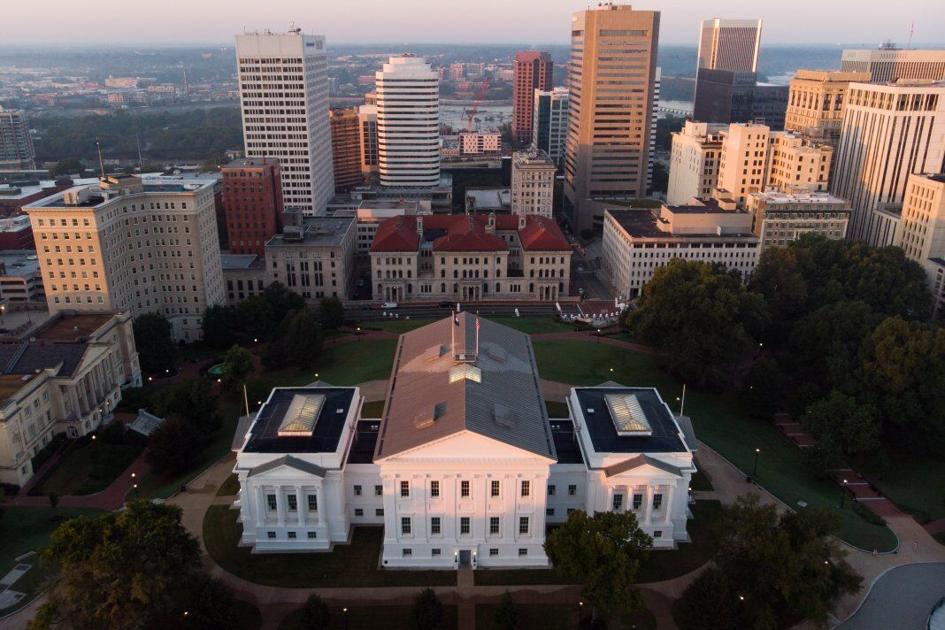
After Democrats took control of the General Assembly in 2020, a common refrain emerged among Republicans who opposed legislation that raised the minimum wage and added new anti-discrimination protections for employees.
“The Democrat majority has done much to diminish Virginia’s reputation for being America’s ‘best state for business,’” said Senate Minority Leader Tommy Norment, R-James City, as Democrats’ first legislative session in power in more than two decades came to a close, invoking a ranking bestowed annually by the cable news network CNBC.
Two years later, it looks like at least some of those Democratic priorities actually helped the state’s business reputation.
For the second time in a row, Virginia was named the “best state for business” by CNBC, which this year began factoring things like anti-discrimination laws and voting rights protections into its rankings under the heading of inclusivity.
“Our economy in the Commonwealth of Virginia is roaring,” Gov. Ralph Northam said during a victory-lap news conference in Norfolk on Tuesday. “It’s why companies of all sizes are choosing to call our commonwealth home. Virginia is proving that when you treat people right, it’s good for everyone and it’s also good for business.”
In the context of the gubernatorial campaign, Northam’s verbiage could be read as a riposte to GOP gubernatorial nominee Glenn Youngkin, a retired private-equity CEO who has complained Democrats ran the state’s economy “into a ditch” and has repeatedly promised to make it “rip roaring.”
Youngkin’s campaign downplayed the CNBC ranking Tuesday, arguing the state is underperforming in key metrics like cost of living and cost of doing business.
But the overall ranking, which Democrats have already begun trumpeting as validation of their leadership, cuts against Youngkin’s messaging, which has hinged on the idea that Virginia’s economy needs righting.
At a campaign rally in Richmond Tuesday afternoon after the new CNBC rankings were announced, Youngkin told the crowd Virginia has “fallen further behind our competitors in business.”
“I’m all for Virginia getting accolades,” Youngkin said when questioned by reporters after the event. “An unfortunate reality is that Virginia hasn’t performed like the No. 1 state for business over the last eight years.”
He said “peer states” like Maryland, North Carolina and Tennessee are seeing faster growth and noted Virginia has higher costs of living than the national average and ranks in the “bottom half” in the business costs category.
“And those are the factors that I think overwhelm almost everything else when it comes to drawing businesses into Virginia and getting our economy running,” Youngkin said.
How and why a cable news network emerged as the leading arbiter of which jurisdictions are and aren’t “good for business” remains unclear, but until this year, the network’s authority on the subject was a point of bipartisan agreement in Virginia, which has scored highly on the lists under both Democratic and Republican governors.
Republicans and Democrats alike celebrated when CNBC gave Virginia the No. 1 spot in 2019, though GOP lawmakers were quick to take credit for protecting Virginia’s spot on the list by blocking Democratic bills. “The ranking comes despite policy proposals from Democrats that would have set Virginia back,” said the GOP House speaker at the time, Del. Kirk Cox.
And had Virginia’s ranking dipped, Youngkin could’ve used the slippage to argue Virginia was on the wrong track, just as Republican Ed Gillespie did four years ago when he routinely brought up Virginia’s fall to 13th on CNBC’s list in his unsuccessful campaign for governor.
Instead, it was Democratic nominee Terry McAuliffe celebrating Tuesday.
“Virginia is once again the top state in the nation for business and the reasons why are clear: for the past eight years we have fought to create a stronger economy that lifts up everyone and to keep our state open and welcoming to all,” McAuliffe said in a statement.
The Youngkin campaign noted McAuliffe has said he’d sign a bill to repeal right-to-work, the anti-union law advertised as a pillar of the state’s business-friendly climate. But repeal efforts have failed in the Democratic-led legislature, and McAuliffe has said he doesn’t think they’ll fare any better in the future.
At the Port of Virginia, where Northam staged his news conference, Senate Majority Leader Dick Saslaw said he had a message for “all those naysayers out there” who warned Democrats that efforts to improve conditions for workers would jeopardize the state’s business environment: “We’ve proven them wrong,” he said.
The state’s ranking for cost of doing business improved since 2019, according to CNBC, rising from 35th in the country to 26th. Meanwhile, the state’s “business friendliness” rank, which CNBC says measures the “legal and regulatory climates of each state,” dropped, from third to 11th.
In the newly recalculated quality of life category, Virginia ranked 11. The category measures factors such as crime rates, health care, local attractions and statewide anti-discrimination measures. On that front, CNBC cited legislation that expanded voting rights, repealed voter ID laws and made the state the first in the South to extend comprehensive anti-discrimination protections to LGBTQ residents.
While the category represented accounted for about a tenth of the state’s overall score, Youngkin’s campaign seized on the measure as it dismissed the network’s rankings. “Virginia may be No. 1 for political correctness, pushing critical race theory in schools and not requiring a photo ID to vote under Terry McAuliffe and Ralph Northam, but Virginia ranks among the worst states when it comes to things that actually determine the success of small businesses and opportunities for workers,” said campaign spokeswoman Macaulay Porter in an email.
Political observers called the response predictable, arguing it won’t do much to counter the overall message that the state is not only on the right track, but thriving.
“You can’t argue Virginia is a failure when it’s No. 1,” said Stephen Farnsworth, director of the University of Mary Washington’s Center for Leadership and Media Studies. “You can’t argue that red states are better for business when Virginia is No. 1. This is not helpful to the Youngkin campaign. Not in the least.”
stock market investing and crypto investing. Come for business consultations with us. Our phone number is 804-349-6199
All business plans created are tailored to the client's strengths and weaknesses after a full market research is done for the business and locations that it is profitable for you. please feel free to contact me. 804-349-6199
from WordPress https://ift.tt/3kppCHD
via IFTTT







No comments:
Post a Comment